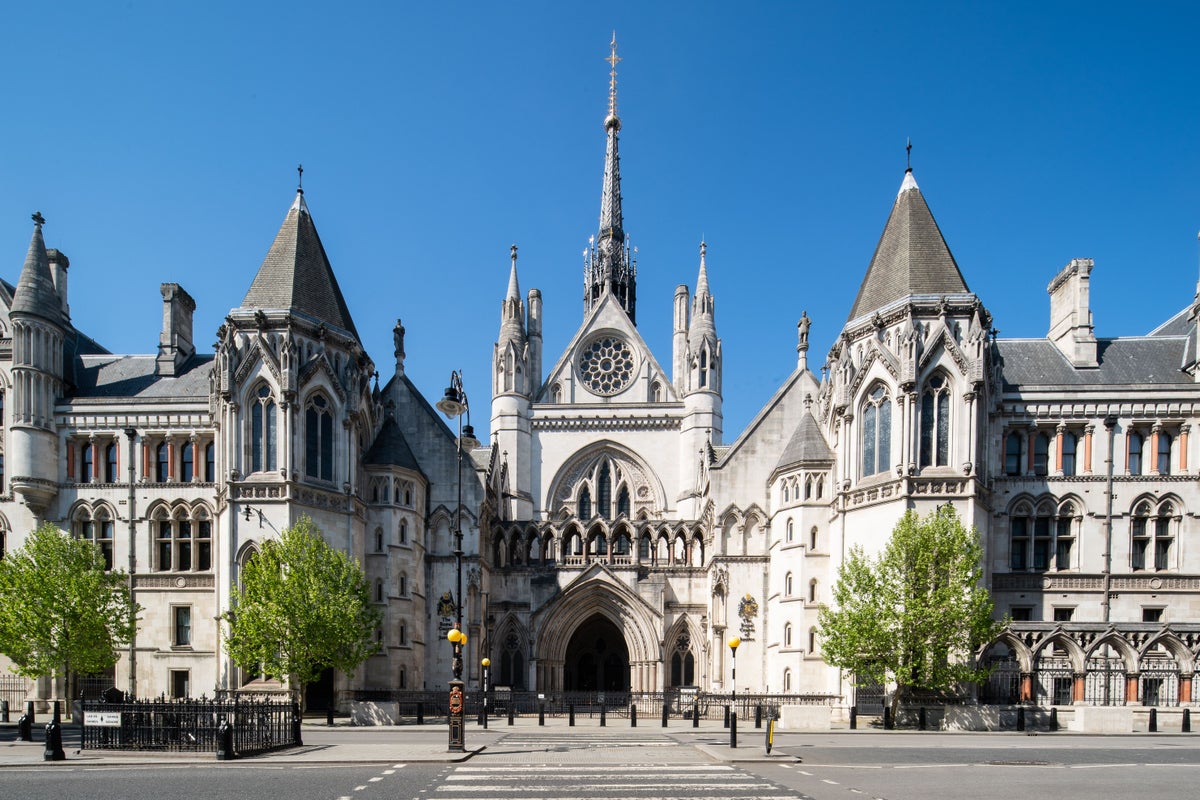
A mother-of-three who was jailed for obtaining drugs to have an abortion after the legal cut-off will be released from prison after winning an appeal against her sentence.
Carla Foster, 45, was sentenced last month to 28 months in prison, after illegally procuring drugs to terminate her pregnancy during lockdown when she was between 32 to 34 weeks pregnant.
The case sparked a major backlash among MPs, campaigners and members of the public who argued it was not in the public interest to jail Foster. It also led to calls for abortion to be decriminalised.
The Court of Appeal has now reduced her sentence to 14 months and ruled it should be suspended.
Sitting with two other judges, Dame Victoria Sharp said: "This is a very sad case, not least because of the length of the gestation when the offence was committed.
"It is a case that calls for compassion, not punishment, and where no useful purpose is served by detaining Ms Foster in custody."
Dame Victoria added that there was “exceptionally strong mitigation” in Foster’s case.
Foster’s barrister Barry White said there was a lack of “vital” reports into Foster’s mental health at the time of the offence and that “the obvious impact of the pandemic added to Ms Foster’s already anxious state of mind”.
The Court of Appeal was told that the jail in which Foster has spent 35 days has refused to permit her any form of communication with her three children, one of whom is autistic.
Mr White also said Foster had voluntarily brought her actions to the attention of the police, adding: “Had she not done that, it is highly unlikely that she would have ever been prosecuted.”
Stoke-on-Trent Crown Court previously heard Foster had lied to the British Pregnancy Advisory Service (BPAS) during a telephone consultation about how far into her pregnancy she was so she could obtain the pills.
Foster was initially charged with child destruction and pleaded not guilty, before pleading guilty to a different charge of administering drugs or using instruments to procure an abortion.
During the sentencing hearing, the court previously heard Foster, who had three sons before becoming pregnant again in 2019, did not see a doctor about her pregnancy due to being “embarrassed” and not realising how far along she was.
Justice Pepperall said Foster felt “very deep and genuine remorse”, was “racked with guilt” and still had nightmares over her actions.
Chiara Capraro, Amnesty International UK’s women’s rights director, said it was “relieved” with the outcome.
They added: “She should never been put through such a hideous ordeal in the first place.
“It was deeply disturbing to witness a woman in the UK being sentenced to jail because of a law dating back to 1861.”
Labour MP Stella Creasy said on Twitter: “The relief that this woman can go home to be with her children is tempered by the knowledge there are more cases to come where women in England being prosecuted and investigated for having abortions under this archaic legislation. That’s why we need decrim now.”
Clare Murphy, chief executive of abortion provider British Pregnancy Advisory Service, said the Court of Appeal has “recognised that this cruel, antiquated law does not reflect” current societal values.
She added: “Now is the time to reform abortion law so that no more women are unjustly criminalised for taking desperate actions at a desperate time in their lives.
“Two women accused of illegally ending their own pregnancies are currently awaiting trial. We urge parliament to take action and decriminalise abortion as a matter of urgency.”
Seyi Falodun-Liburd, co-director of feminist campaign group Level Up, which is calling for abortion to be decriminalised, told The Independent: “Like thousands of mothers in Britain, Carla was sent to prison and separated from her children for something that should never have put her there.
“This case must bring renewed calls to fight the criminalisation of abortion – and of women and mothers more broadly.
“While we are delighted that Carla has been released from prison, she should have never been put there in the first place.”
Robert Price, for the Crown Prosecution Service, said the original sentence was not “manifestly excessive”.
He added: “The judge correctly made allowances for mitigating factors in this unusually sensitive case.”
It comes after The Independent recently reported on figures that show dozens of women suspected of having illegal abortions have faced criminal investigations from the police in recent years.
Information obtained under freedom of information (FOI) laws reveal at least 36 women endured criminal investigations after being accused of having illegal abortions from April 2014 to December 2021.
The data, acquired by National World and based on responses from 35 police forces, looked at recorded crimes for the two charges of procuring an illegal abortion and the intentional destruction of a viable unborn child.
Dr Jonathon Lord, who represented medical organisations in the case, said the sentencing of Foster “brought back the horrors of the 1960s”.
The consultant NHS gynaecologist at the Royal Cornwall Hospitals NHS Trust added: “The really big fear is that we know the Crown Prosecution Service (CPS) are sitting on lots more cases - waiting to see whether this one would be jailed and thereby prove a public interest in prosecuting.
“So we now expect anything between six to 40 proceeding - it is so hard to know numbers as it’s all so secretive. We don’t know if these cases will be charged. Another issue is that patients are told to speak to nobody. So one woman had post-traumatic stress disorder (PTSD) for over six months before we heard she’d had a premature delivery that arose suspicion.”
He noted Foster had been imprisoned under a law from 1861 - “an era when public hangings drew large crowds and 67 years before women were able to vote”.
Additional reporting by wires







